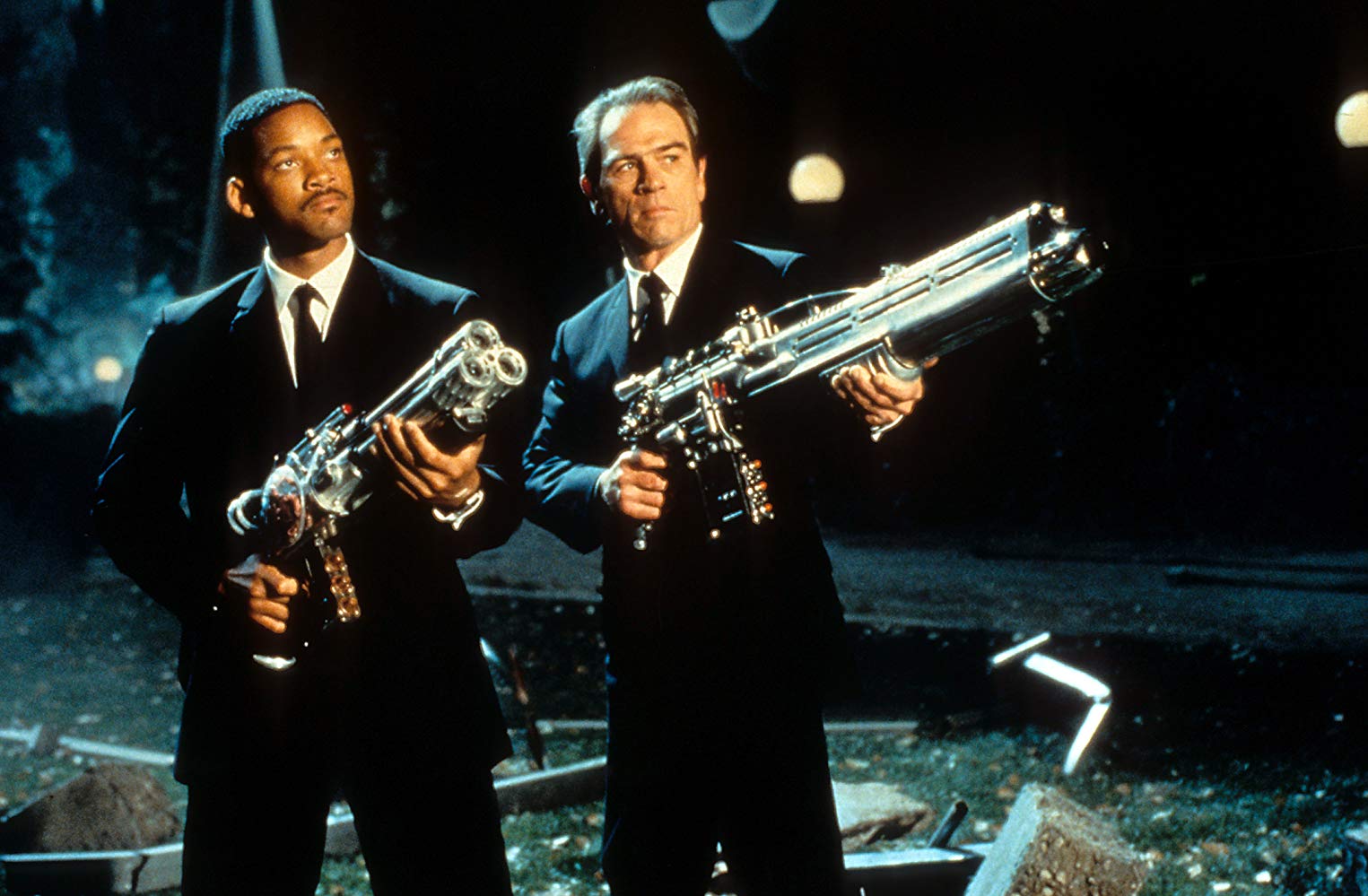The Men in Black monitor and police alien activity on Earth, unbeknownst to the general population. When a new extraterrestrial threat arrives, it is up to the legendary Agent H (Chris Hemsworth) and rookie Agent M (Tessa Thompson) to stop it.
MIB: International is the fourth entry in the MIB franchise, but the first to not star Will Smith and Tommy Lee Jones in their respective roles. The original MIB (1997) was a surprise hit that sparked two sequels of varying success financially and critically. The attempt with MIB: International, as it would seem, was to revitalize the franchise by essentially feeding off the on-screen chemistry of Chris Hemsworth and Tessa Thompson following their success from Thor: Ragnarok. But unfortunately, there are a few more ingredients to producing a quality sci-fi action comedy than merely two meteoric actors.

Will Smith and Tommy Lee Jones in Men in Black (1997) | Courtesy of IMDb
The MIB sequels formed organically. The production of multiple entries was spawned from the original’s unexpected financial and critical success. Sequels like these tend to suffer similar difficulties in their respective attempts to capture the magic of the original. Too often the sequels frantically try to hold onto jokes from predecessors, only to see the gags fall flat into redundancy. They hold tightly to the magic of the original, but see the mystique of the film’s well-crafted world slip through their fingers. The two initial MIB sequels struggled to grasp the established universe and find their footing to push the story forward in a natural path. So, it came to Hemsworth and Thompson to try and reinvigorate an otherwise fading franchise.
The proposed solution was not enough to return MIB to its former glory. It was evident early on that director Gary Gray (The Italian Job, Straight Outta Compton) was out of his element in delivering that trademark style of dark humor unique to the MIB original. Yet, his attempt achieved more than both previous installments, which had taken a cartoonish, slapstick approach. Gray isn’t Taika Waititi, but he proved better equipped to handle a MIB sequel than the original’s own director, Barry Sonnenfeld.
While the script’s humor felt forced at times, it also began to warm up after the first act. It felt as though the entire cast and crew just wanted to fight through the establishment of its new characters into the familiar world so we all could move forward in the plot. And once we as an audience tough it out, we are rewarded with an entertaining sci-fi romp that feeds off its two leads and a fun cast of alien characters. The MIB franchise thrives off of its disguised alien reveals and creature design. That framework is on display here, even down to the “Frank the Pug replacement” Pawny (voiced by the comedically talented Kumail Nanjiani).
##Gallery_295ed9c1-42d4-4ac4-a95d-2784eda196ae##
However, the futuristic technology isn’t near as fun. It was used most frequently to recall repetitive jokes from films past (the "little red button" and the Noisy Cricket) and rarely branched out to achieve new elements of creativity of its own. We end up jaded by the display, with the exception of one particularly entertaining scene involving the primary alien antagonists and a signature MIB vehicle crammed full of armaments.
MIB: International is intrinsically flawed from its father’s children, but chose to do more with its inheritance than its siblings. While MIB: International further exemplified the unattainable bar of the original’s unique success, it managed to prove that perhaps this franchise is still brimming with untapped potential. This cast and crew just may need another go at it to catch their footing and bring a complete product to the big screen.
Have you seen MIB: International? If so, what did you think? Did it live up to your expectations (or lack thereof)? Sound off in the comments below.
